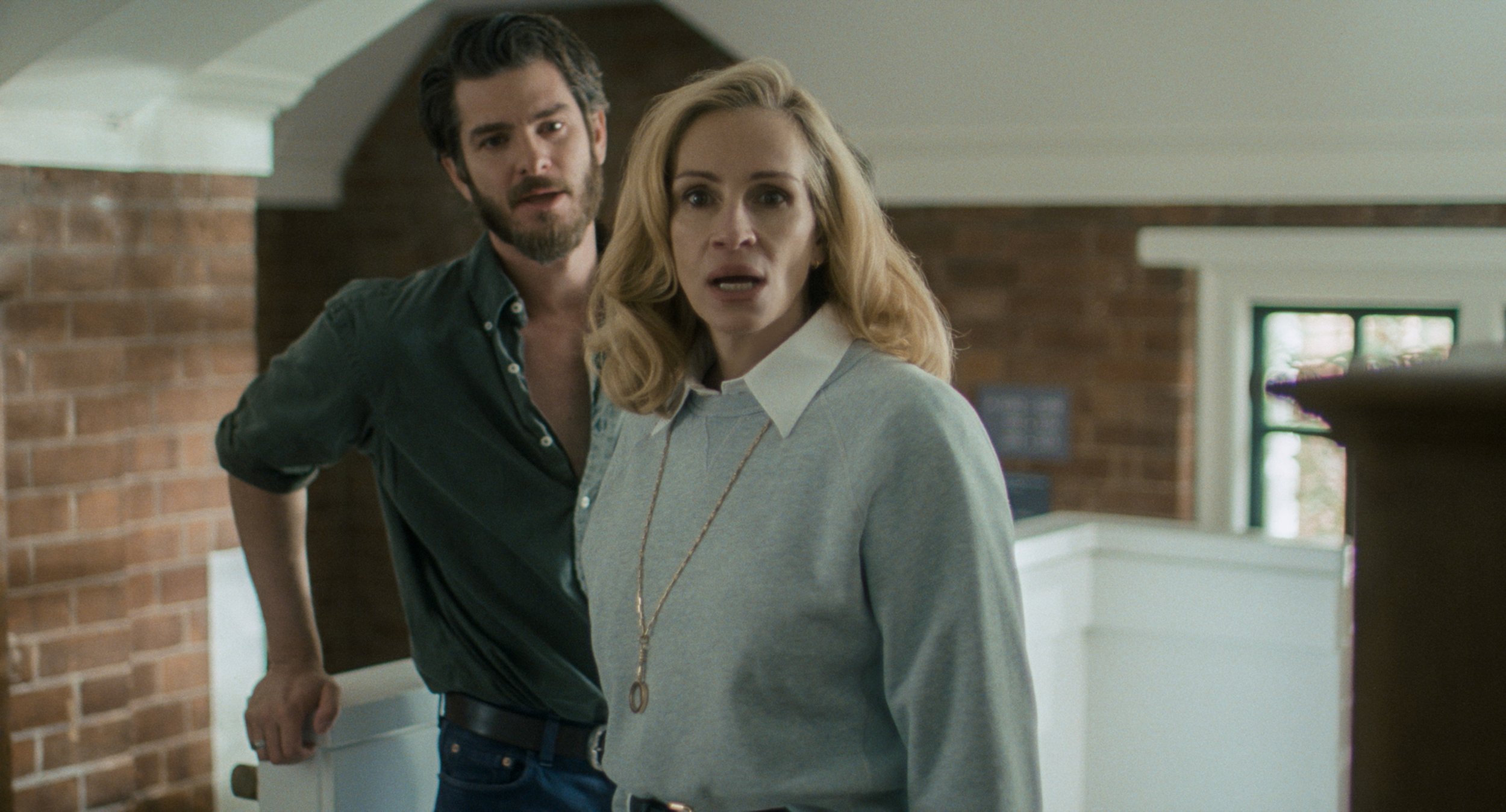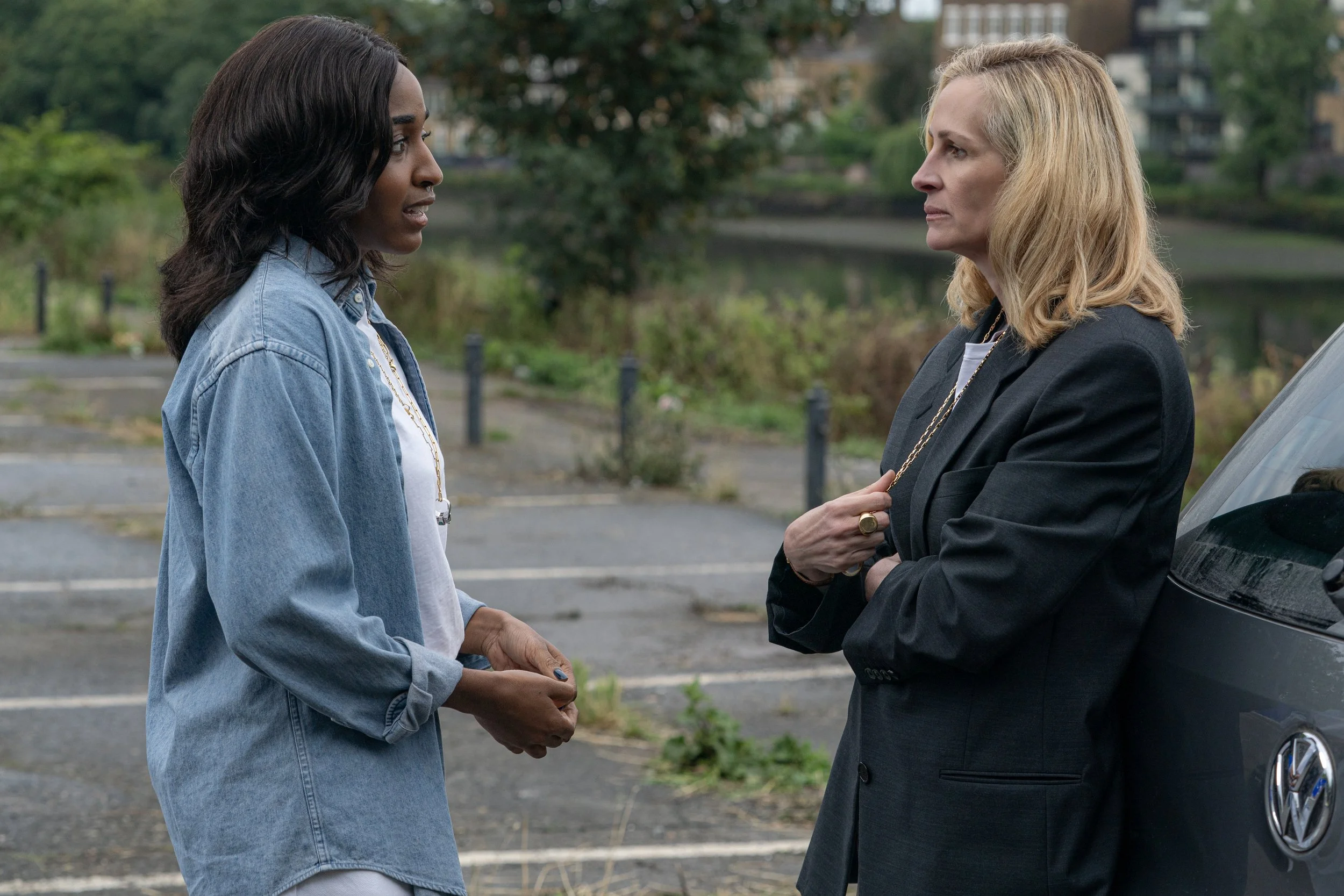“After the Hunt” Struggles to Find Perspective
The world of liberal arts colleges has become a battleground in recent years. College should be a place where young people are given the opportunity to explore a world outside of their own. This may be the first time they meet someone who speaks a different language or sees things in a way that is vastly different from their own perceptions. Healthy debate is the cornerstone of societal growth, but the United States has seemingly lost its ability to uphold the “healthy” part of the sharing of disparate ideas. Luca Guadagnino’s After the Hunt takes place at Yale in 2019 as #MeToo conversations began to ripple beyond Hollywood. Nora Garrett’s script looks at allegations of sexual assault on a college campus and the power, racial, and gender dynamics at play.
Alma Imhoff (Julia Roberts) is one of those elite college professors whose attention and affirmation students crave. They don’t see her as someone who’s intelligent, but as someone they can pal around with, like fellow professor Hank Gibson (Andrew Garfield). Her compliments, when given, have been hard-earned. Maggie Resnick (Ayo Edebiri) is a Ph.D candidate and a teacher’s aide for Alma in the philosophy department. Both Alma and Hank see something worth cultivating in Maggie, and the way they interact with her blurs the line between teacher and student. After an event held at Alma and her husband’s (Michael Stuhlbarg) home, Hank walks Maggie home. We only see them get in an elevator together, but the events of the walk home will shake the foundation of the college.
Amazon MGM Studios
After the Hunt hinges on this walk home. What happened, what didn’t, who to believe, and who to distrust. Maggie and Hank agree that Hank came up for a nightcap and that he was far too drunk to do that, but from there, the stories differ. Hank is adamant that nothing untoward happened, while Maggie runs to Alma the next day for support because Hank crossed a line. Alma finds herself in the middle, with both looking to her for support. She portrays herself as someone who has an innate understanding of morality, but Alma is hesitant to take either side because she knows that aligning herself wholly with one person could jeopardize her chances for tenure.
The opening sequence of the film shows Alma as she gets ready for her day. A ticking clock keeps time as she goes about her routine. This sequence is one of the finest examples of show-don’t-tell ideology. In this five-minute montage, the audience immediately understands who Alma is as a person. She doesn’t return the well wishes of her housekeeper, she takes her coffee to work in a regular mug, and she sits on the table as she teaches. This is a woman who is obsessed with her outward appearance, but who’s good at making her chill aura seem effortless. Even if you don’t agree with her actions throughout the film, this opening montage offers all the insight to her psyche that the audience needs to see where she’s coming from. The same can be said about Hank’s first two scenes. He’s perpetually slouching, has one too many buttons undone on his shirt, and he’s a little touchy with everyone. Again, as with Alma, these scenes perfectly demonstrate who Hank is as a person and allow his actions to make complete sense.
Photo Credit: Yannis Drakoulidis © 2025 Amazon Content Services
It’s Maggie who is missing an introduction, which then creates a fundamental disconnect in the larger story of After the Hunt. The first scene that features Maggie paints her as a shy student, unnerved by the attention of a room on her. That’s it. That is the extent of the insight we’re given to Maggie’s character before the world is upended with the walk home. Without the same deep grasp of Maggie that the audience has with Alma and Hank, we feel a little unmoored. It doesn’t help that Maggie disappears from the film for large chunks of time. Hank does as well, but because we have a firm grasp on his character, the loss doesn’t feel as great. Sure, it’s a loss because Garfield is turning in a career-high performance, but in terms of the story, we can guess where Hank is when he’s not on-screen. The same cannot be said for Maggie.
In one of the conversations Maggie and Alma have about the allegations, Maggie says something along the lines of, I’m telling you my experience, sitting right in front of you, and you’re thinking about how this affects the rest of the world. It’s a summation of where After the Hunt loses its way. The film is trying to look at the large ripples of these allegations without giving enough time to the young woman who is making them. Without her insight, without understanding the character of Maggie, After the Hunt gets lost in the noise of everything around her and doesn’t find its way back to something more grounding.
support your local film critic!
~
support your local film critic! ~
Beyond the Cinerama Dome is run by one perpetually tired film critic
and her anxious emotional support chihuahua named Frankie.
Your kind donation means Frankie doesn’t need to get a job…yet.
Follow me on BlueSky, Instagram, Letterboxd, YouTube, & Facebook. Check out Movies with My Dad, a new podcast recorded on the car ride home from the movies.



